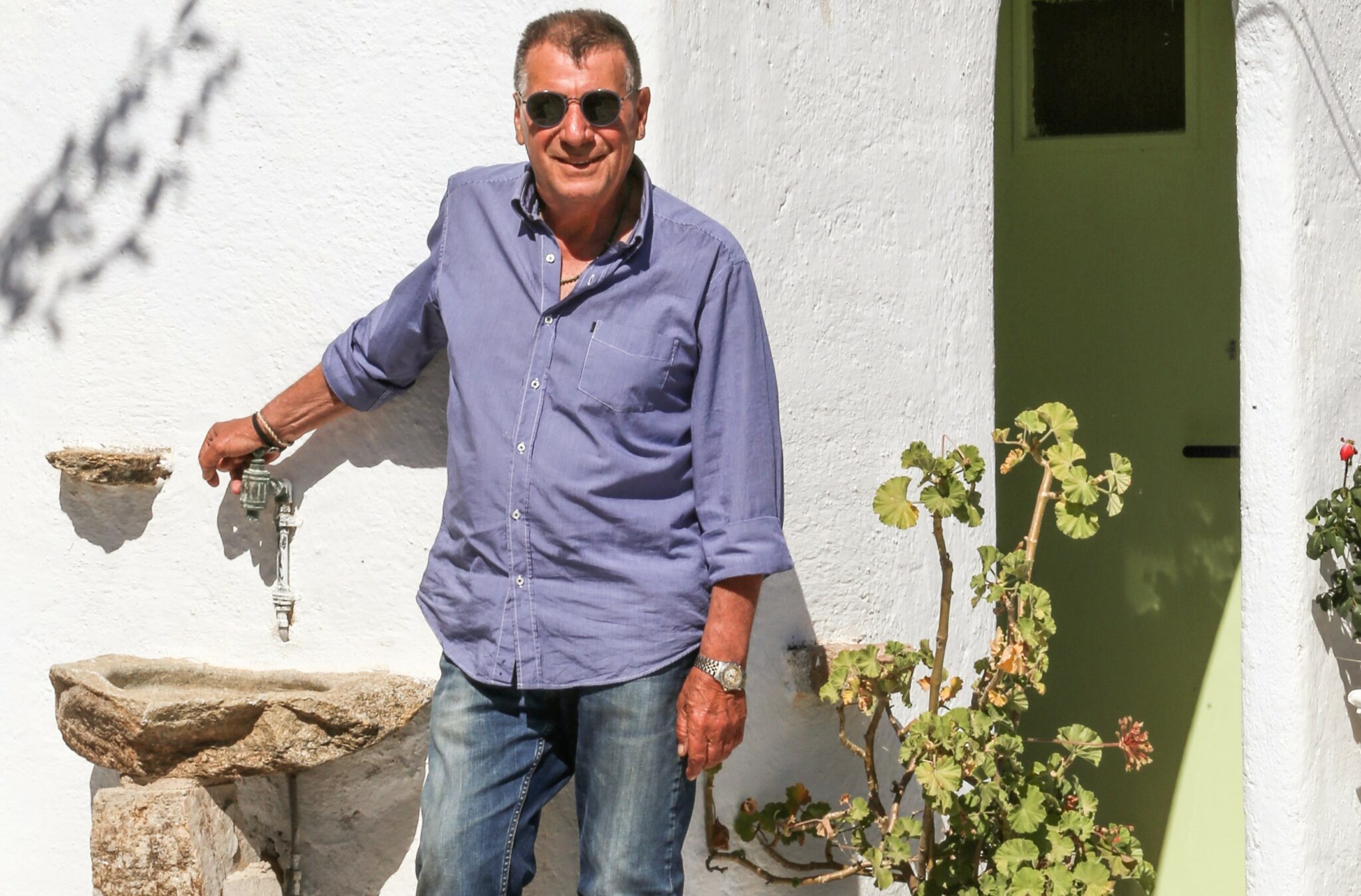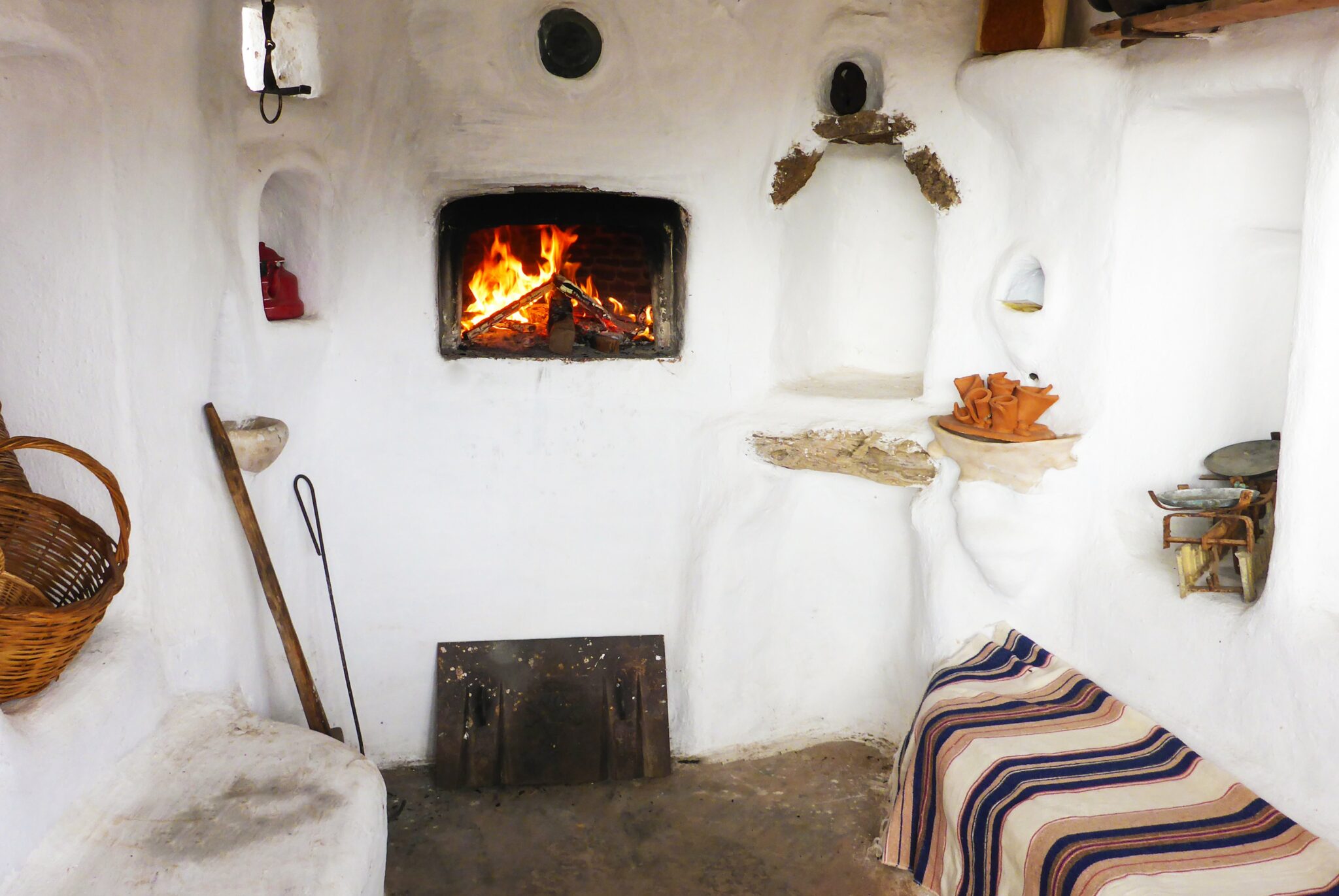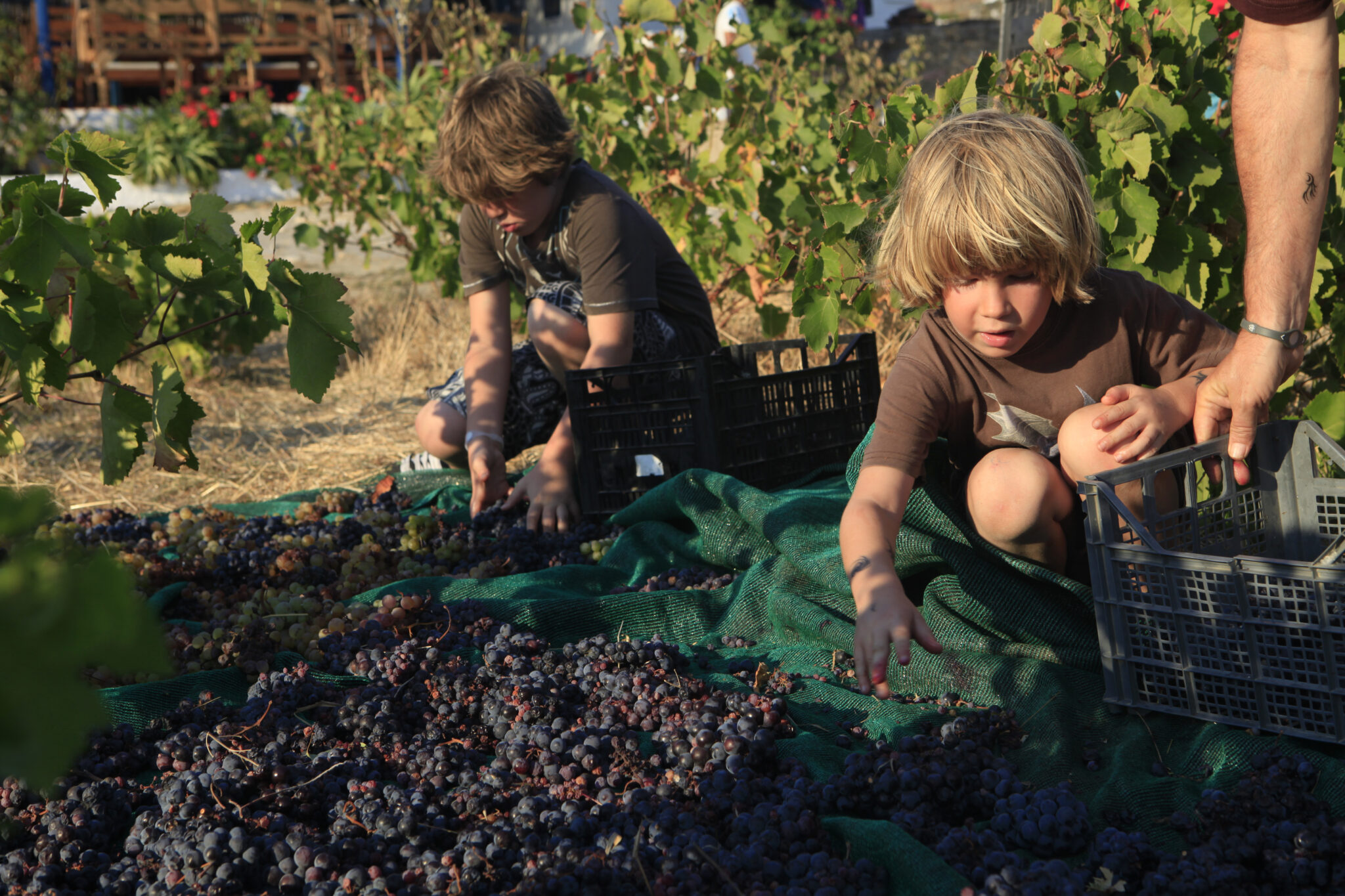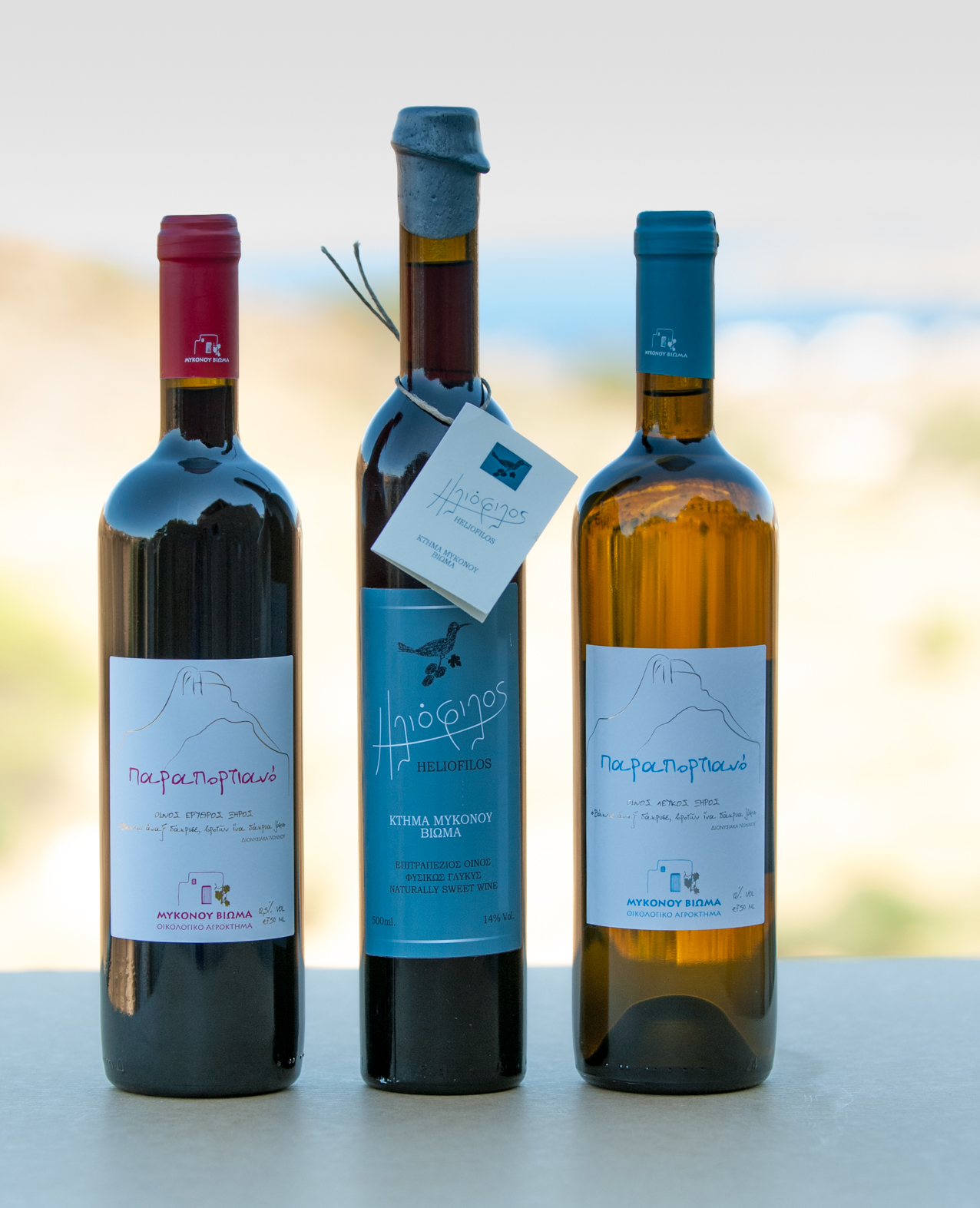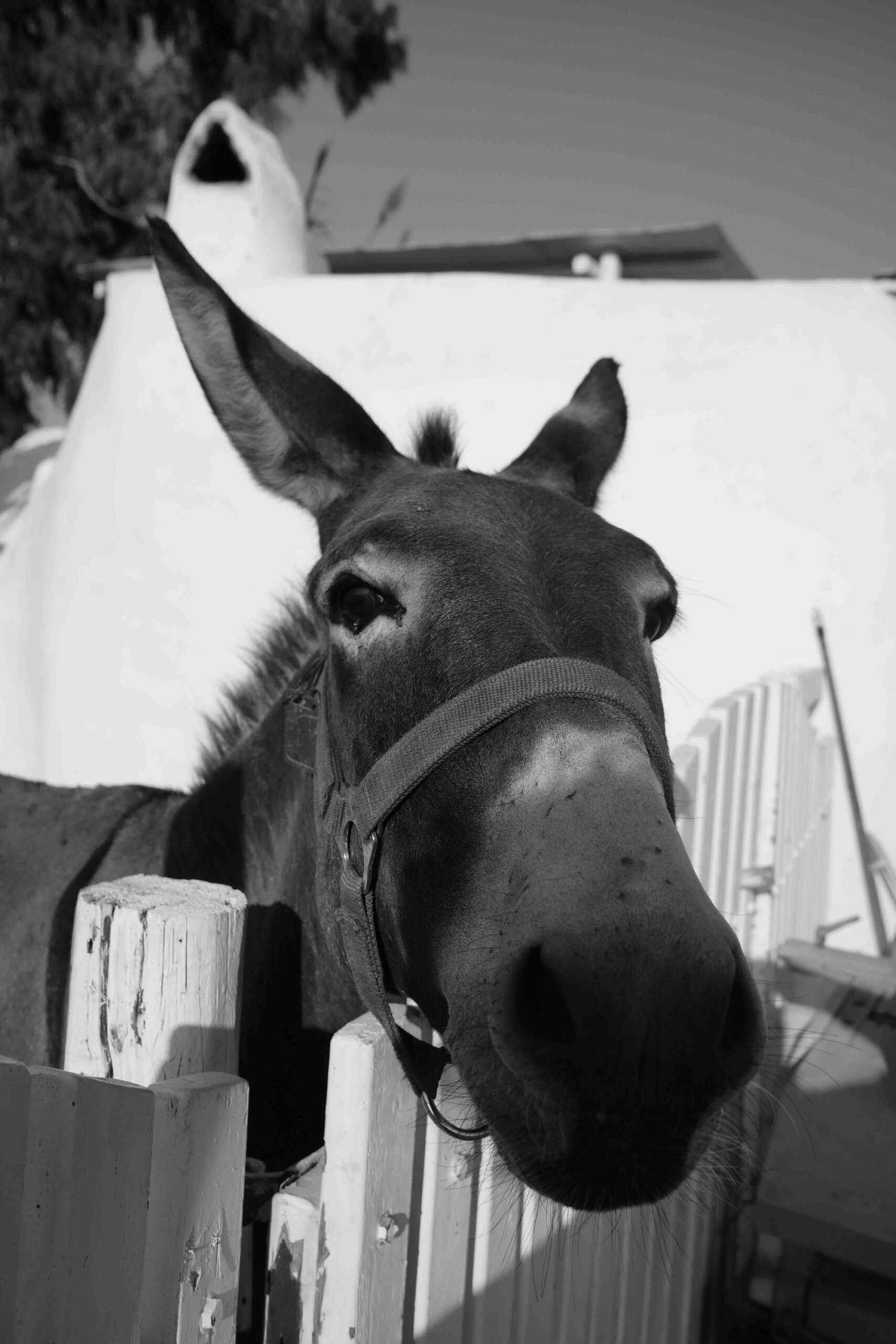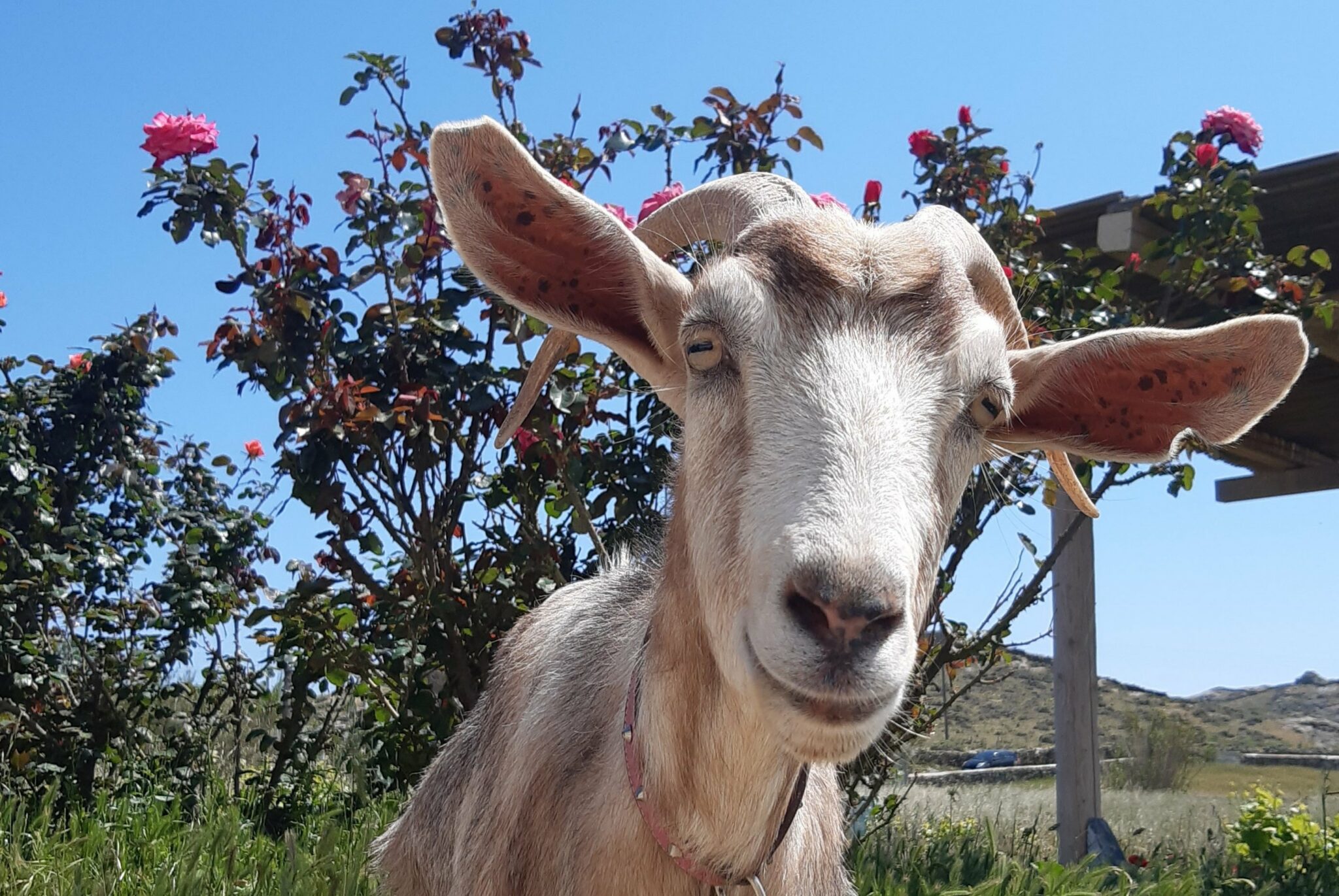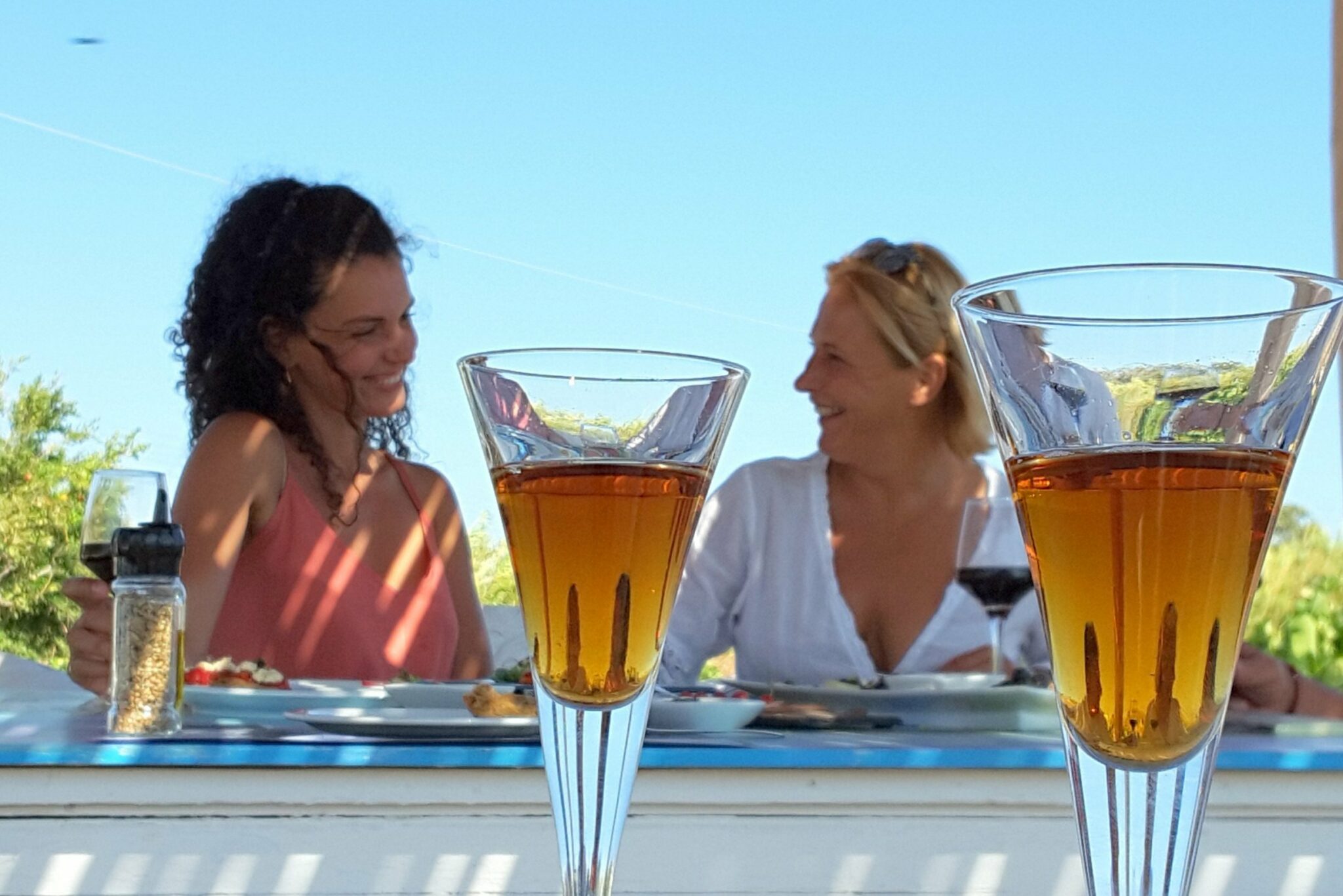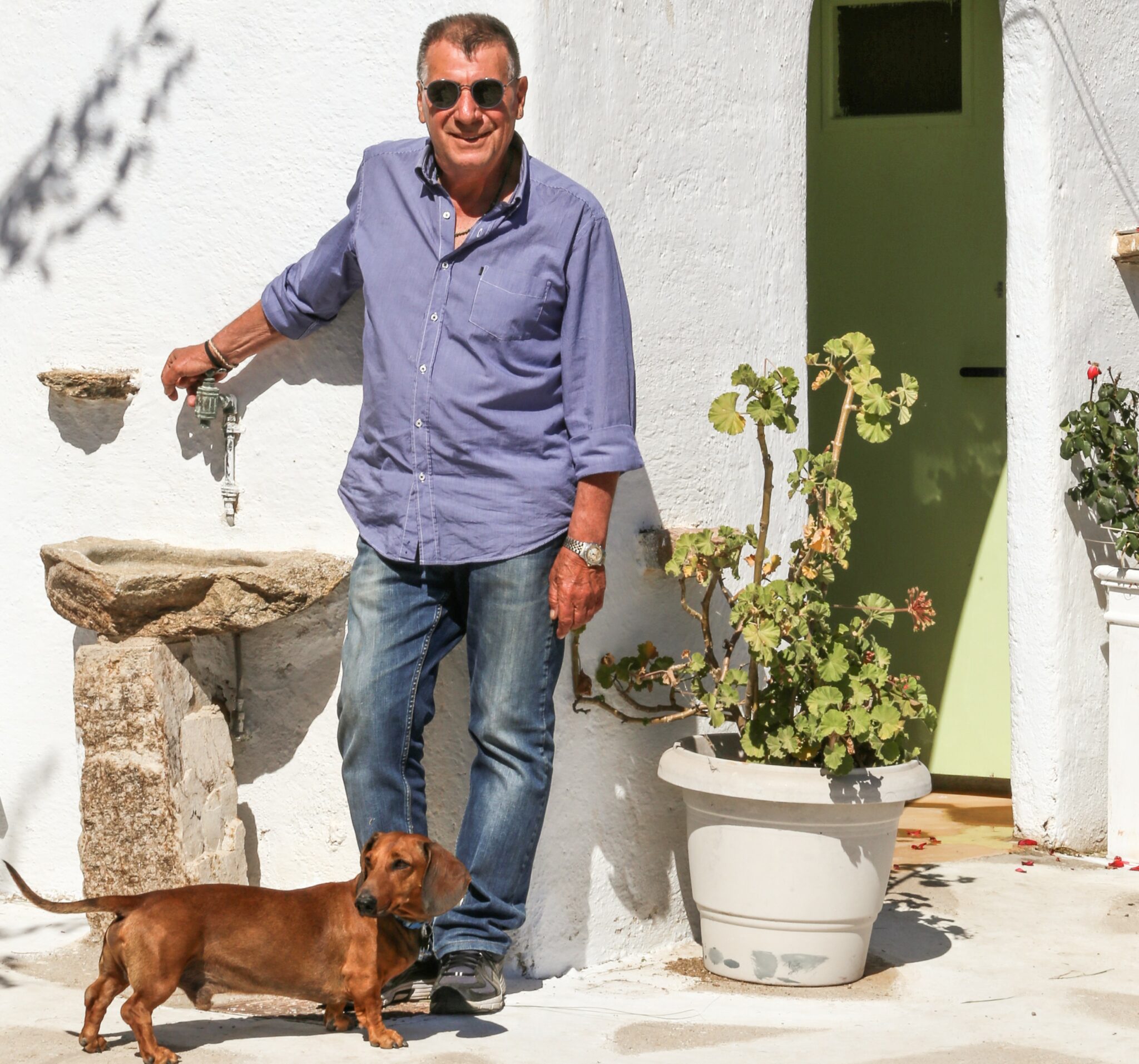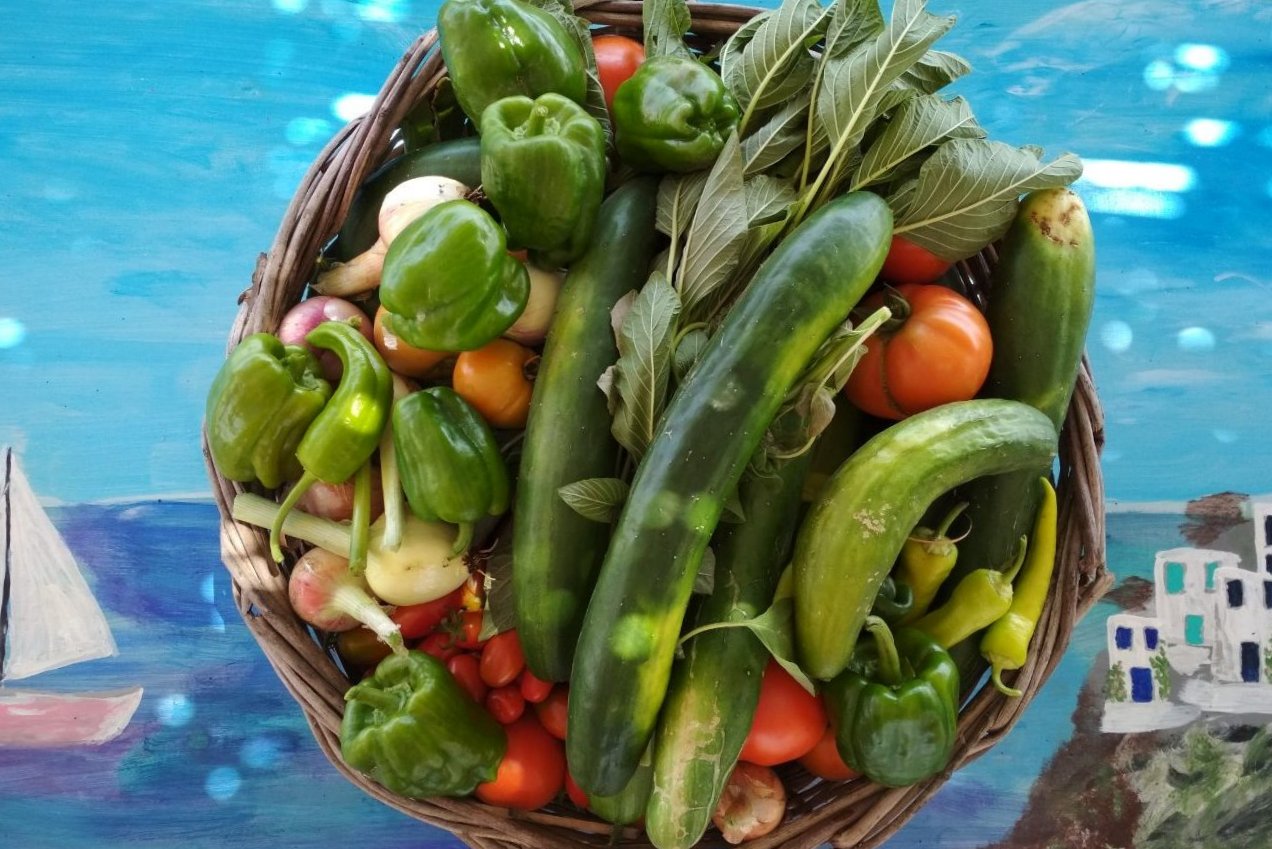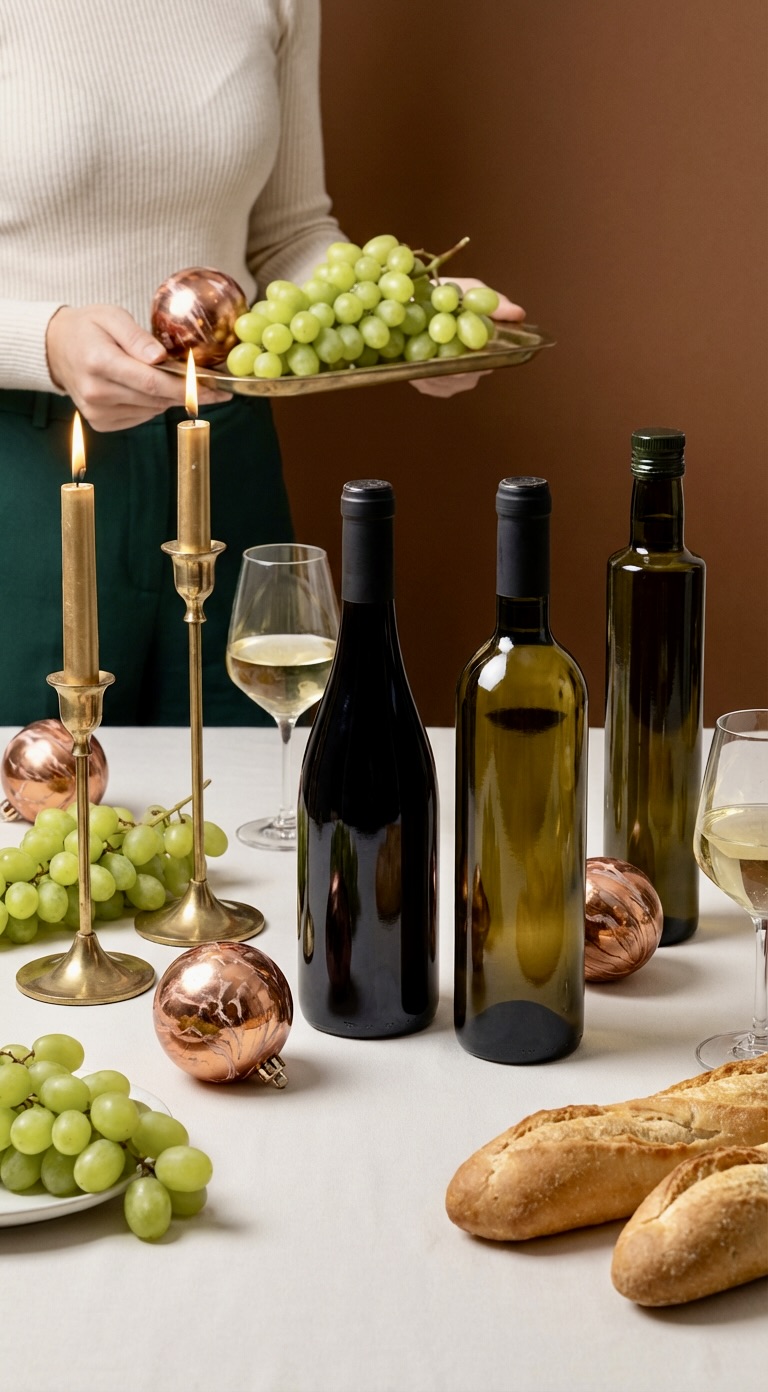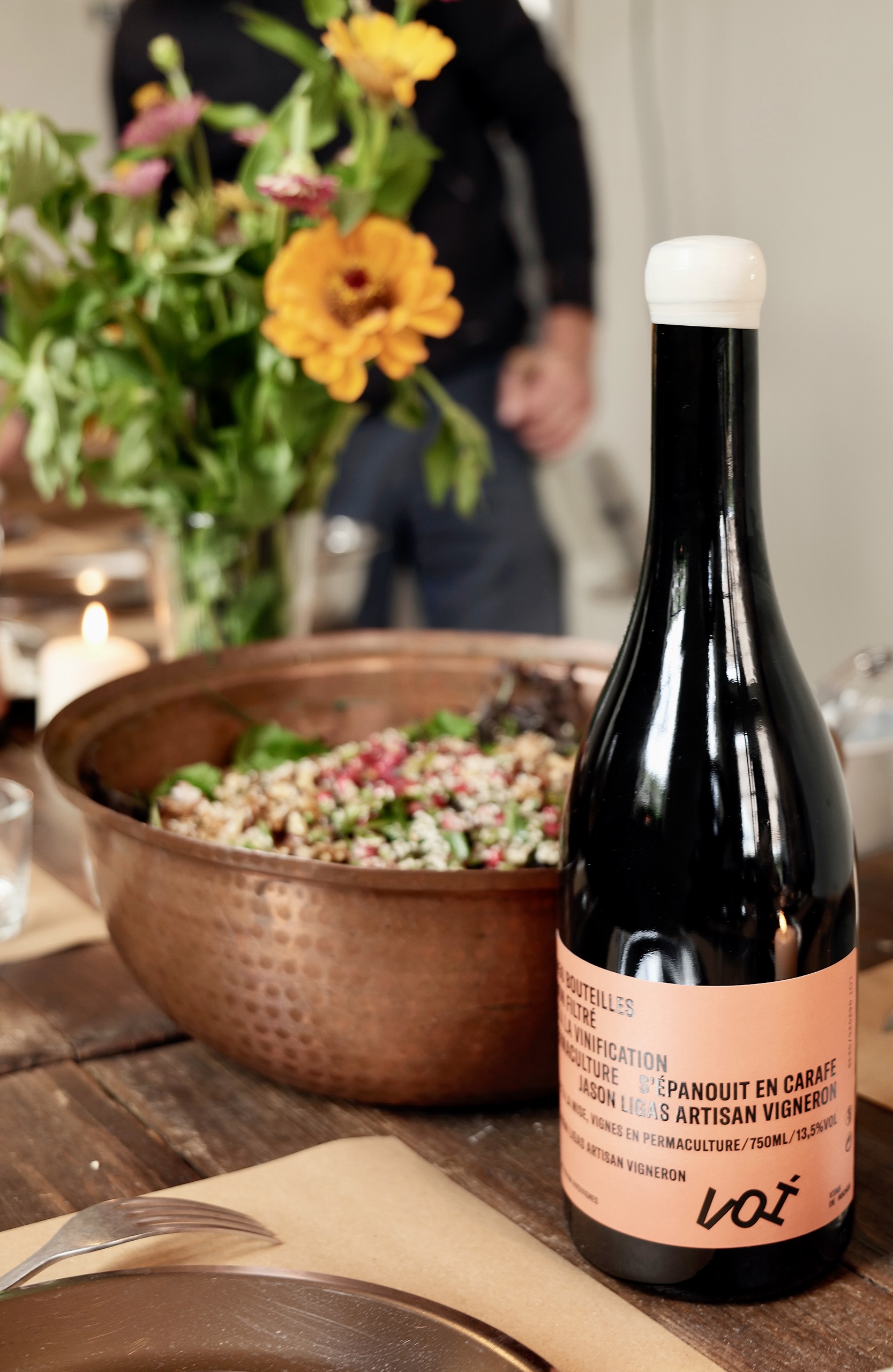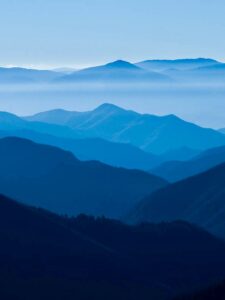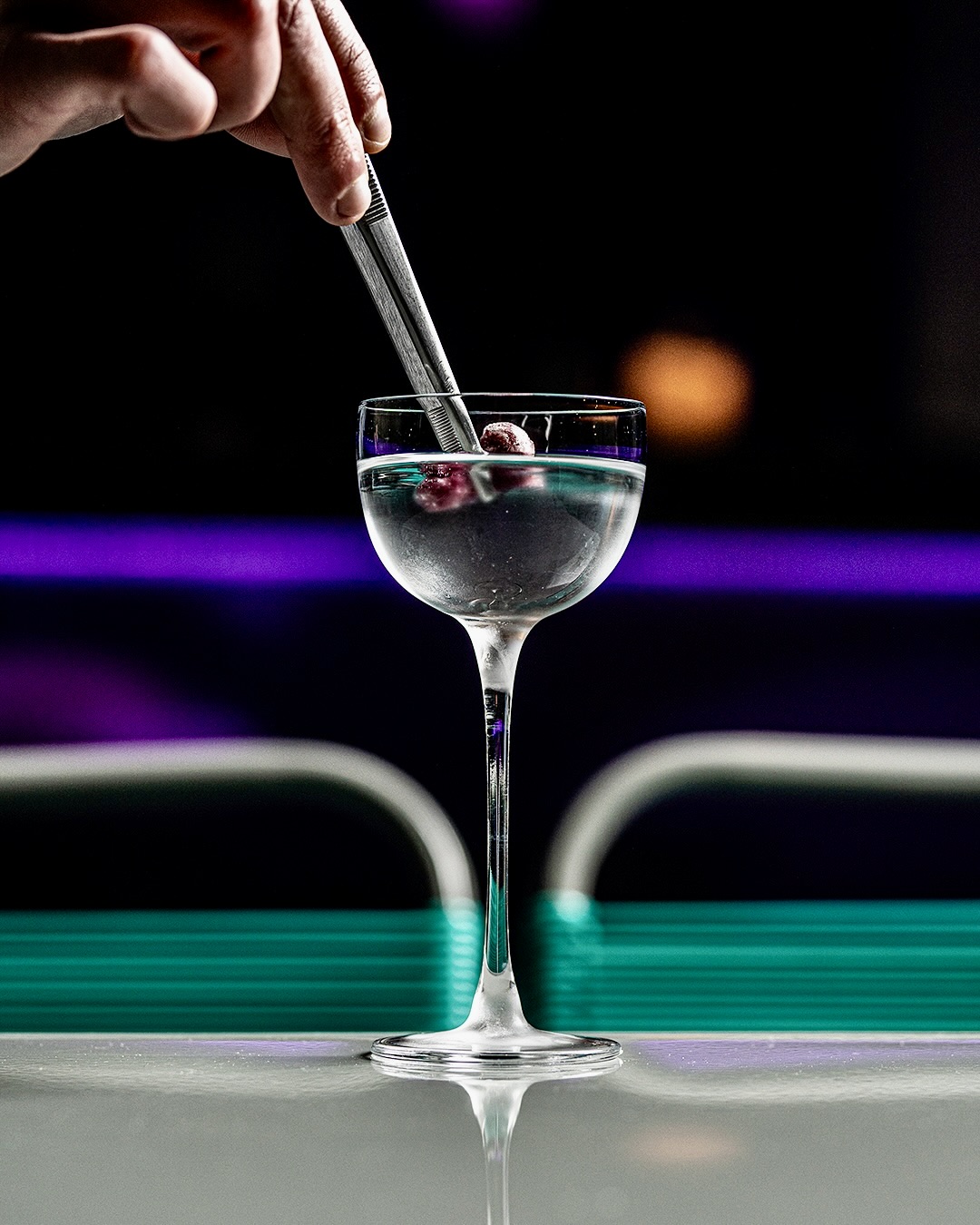There are many reasons to admire this man, even if they don’t know him personally; his story is enough.
Nikos Asimomytis left his job at the Bank of Greece, his office in Athens, as well as his post teaching at the Athens University of Applied Sciences and moved to his father’s island to create Mykonos Vioma. He rented the land that belongs to the monastery of Ano Mera, he planted the vines, he got chickens, rabbits, sheep and goats, and bees. He also created an outdoors events’ space, where he welcomes his visitors. The crazy Athens life now seems so distant. Each moment here counts.
“Wine is bottled poetry” the Scotsman author Robert Louis Stevenson said, making a connection more or less everyone has made at one point, especially after the first three chin-chins. At Mykonos Vioma the elation of art is sweetly mixed with manual labour, high expertise and the desire to create, all in a unique way.
“Mykonos Vioma is my own wine experience (vioma in Greek means lived experience) during my aesthetic and emotional journey” Nikos Asimomytis says, taking the story from the start. Or actually from the middle. “I was a foreign exchange inspector at the Bank of Greece, in Athens, where – as a hobby and a tradition passed down from my father and grandfather – I had two small barrels and I made my own wine, before I even had the idea of this organic farm. The passion for working the land and producing organic wine has always been inside me, but on barren land while I was living in Athens. My return to the homeland and my engagement in the production of wine in Mykonos was a bold step for a time when (in 1994) wine tourism and biodynamic cultivation didn’t even exist as terms, and in contrast with the Mykonians who were abandoning the land and turning to the tourist business.”
-What’s the philosophy behind Mykonos Vioma?
As a farm, we champion respect for nature and the balances it achieves. As a family business, we want our visitors to experience Greek hospitality and feel like guests not like tourists. As a vineyard open to the public (in the past decade), we represent the traditional Mykonos and we aim to acquaint our visitors with the island’s authentic side, and that’s why we use local products to go with our wines at our wine tastings.
-What makes Mykonos Vioma so special and celebrated?
I think that visitors feel the love that permeates every effort we make and see that we aim to preserve our cultural heritage. The calm power of the green surroundings at the unspoiled area of Maou, together with the classical music that can be heard from the speakers, that ensures the healthy growth of the vines, captures the visitors’ senses. In addition, the biodynamic cultivation is an innovative element. In fact, many are surprised by the unkempt state of the vineyard when they first enter – before they have time to hear about the biodynamic method during the tour we offer.
-Tell me about the classical music you use to cultivate your grapes.
Peter Tompkins and Christopher Bird say it best on this issue, in their book “The Secret Life of Plants”. There have been studies on plants that grow listening to music and others without, and they show the difference in quality and quantity. My impression, after all these years of vine growing, is similar to the scientific findings. After all, all of us working and living here (people and animals) feel better due to the classical music.
-Tell me about your wines. Which one is your personal favourite?
We make four wines: white and red ‘Paraportiano”, “Veggera in Rosé” and our sun-dried grape wine “Heliophilos”. The anhydrous traditional Aegean sea grape varieties that we grow are Asyrtiko and Athiri for the white, Mandilari and Agiannitis for the red, Mandilari for the rosé, and Malagouzia for the sun-dried one. My favourite is by far “Heliophilos” as it is a traditional Mykonian wine, it is produced from grapes sun-dried for 7-10 days and then pressed in our traditional wine press where we revive the grape-stomping practice.
-Why is organic growing more important now than ever?
In the era of mass production, of industrialization and of the damaging of traditional seeds and varieties, organic products and indigenous varieties are significantly different in their superior taste and in the preservation of their nutritional ingredients. That is also why apart from the grapes we also grow seasonal vegetables for our own use, as well as for our visitors, and we also make honey.
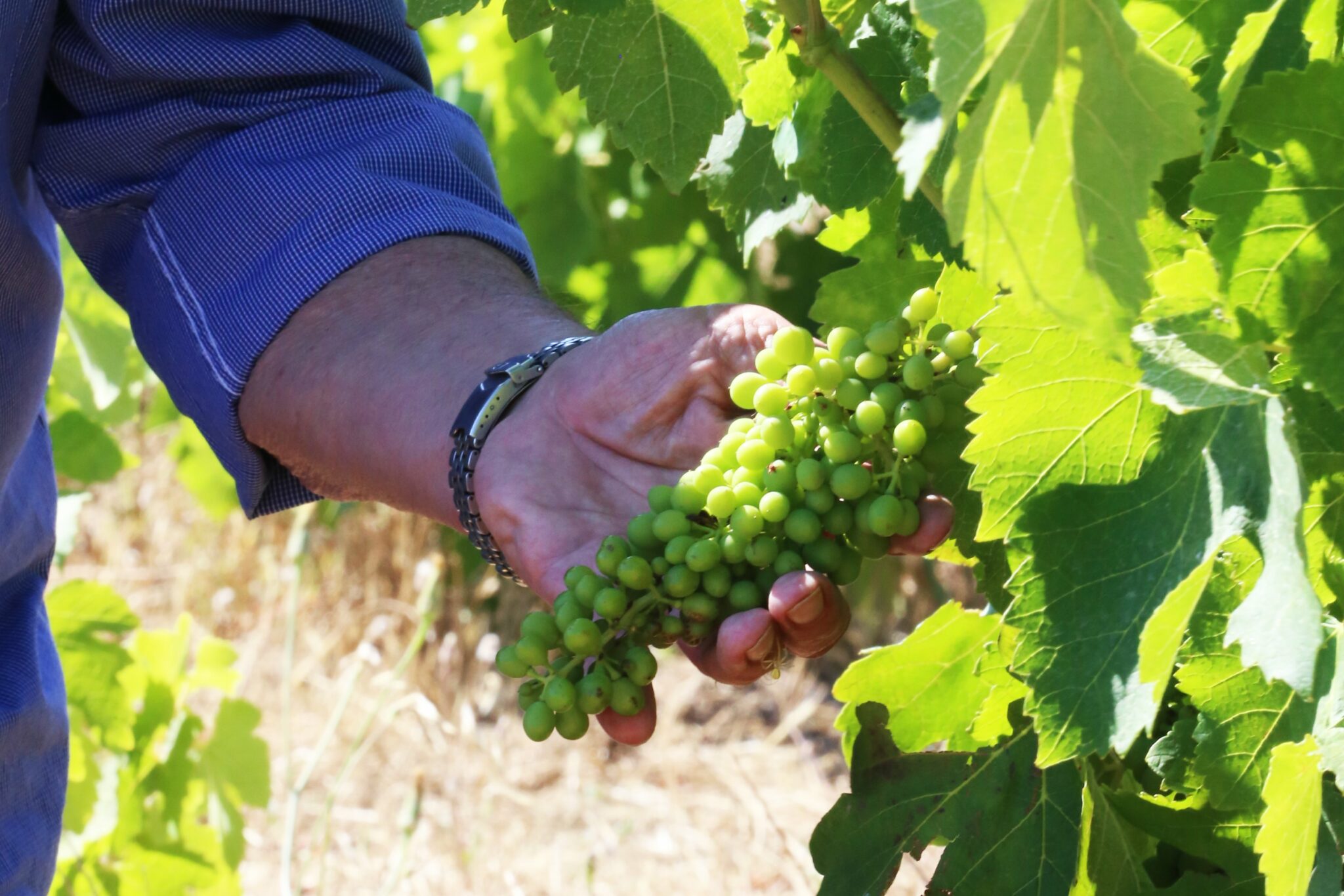
“There have been studies on plants that grow listening to music and others without, and they show the difference in quality and quantity”
Nikos Asimomitis
-What can a visitor do and see on your farm?
Basically, they can enjoy the landscape, the calm, the authentic images and tastes of the island. Wine tasting includes, apart from our wines, cold dishes made with local ingredients, as well as homemade organic lemonade and a traditional sweet treat of Mykonos. We offer tours of the vineyard daily at 2 pm and 4 pm (upon request the tour can be in French), where the visitors can learn about what makes our vineyard distinct, about our wines, and about the traditional elements of our farm (like the traditional architecture of our wood-burning oven), they can also pick vegetables from our vegetable garden, feed the animals on our small farm, identify the herbs in our bee garden, or even help us with the grape harvest if they want. The contact with the land is a particularly reciprocal “interaction” that always recharges the body and fills it with positive energy. Finally, the vineyard is where the Yummy Pedals bike tours start, so the visitor can spend a whole day, first exploring the island on wheels, and then enjoying the landscape and wine with a mezze.
-What type of wine is best for the summer and which suits winter best?
White and rosé wines are best for the hot summer months with their fruity freshness and their coolness, and also because in the summer we eat lighter dishes, mainly fish and vegetables. On the contrary, the red best suits heavy dishes and red meats that are usually eaten in the winter. The sun-dried wine, being a dessert wine, is an all-weather wine. It can be served chilled in the summer or at room temperature in the winter. It’s goes very well with dark chocolate or the “kalathaki” (a traditional almond tartlet) that we serve at the vineyard.
-Do the Mykonian wines have a special characteristic due to the terroir?
The hard and anhydrous soil, even though it doesn’t give much produce per acre, reinforces the sugars and the robustness of the grapes and also prevents grape diseases, so it does indeed contribute to the quality of the fruit, and by default of our wine. Also, the sea breeze hydrates the land and refreshes our grapes and adds a salty essence, especially to the white wine.
-Why do you think people have started learning more about wine in the last decade?
The creative use of different types of wine in cooking has definitely contributed. Also, at restaurants the wine lists consist mainly of Greek labels. But also, the per capita production of wine in Greece, and the increase of exports, contribute to a very good reputation of Greek wines. Finally, wine tourism is now very popular, as it combines beautiful landscapes, taste exploration and, usually, people passionate about their work.



